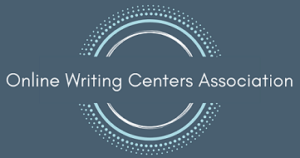The text of the Accessibility Statement is also available in audio format via the embedded media player:
Audio PlayerThe Online Writing Centers Association (OWCA) is committed to supporting accessibility in our interactions with our members and with everyone who engages with our resources and programs. We are also committed to helping online writing centers worldwide in their efforts to develop and sustain accessible, equitable, and inclusive interactions with writers. We believe online writing centers can and must do more, in ways that include hiring practices, professional development, pedagogies, research, resources, and civic action within and beyond our institutions. Working closely with professionals engaged in Disability Studies and praxis, we want to ensure that all writers and writing educators have the information and support necessary for successful writing and learning experiences.
We agree with Andrew Appleton Pine and Karen Moroski-Rigney’s assertion in What About Access? Writing an Accessibility Statement for Your Writing Center that the work of fostering access is a form of restorative justice; only upon examining how our practices, beliefs, or research act as gatekeepers to inclusion can we truly restore dignity, community, and agency to all writers. We also recognize that the scope of accessibility is not static: our understanding of the types, technologies, and terminologies of access is continuing and will continue to develop. Therefore, this statement is a pledge of continuous and adaptive action.
To develop this statement, the 2022 Accessibility Working Group, along with OWCA members, the 2022 OWCA Executive Board, and 2022 Diversity & Social Justice Committee, reflected on what we, as a professional organization, can realistically offer now and in the near future.
Our organization has been committed to accessibility since its inception. To this end, we have already taken the following steps towards increasing the accessibility of our organization and events:
- Wrote our original bylaws to include a permanent Accessibility Committee.
- Amended our bylaws to add 2 Executive Board positions dedicated to accessibility.
- Encouraged disabled and neurodivergent representation on our Accessibility Committee and Executive Board.
- Edited our website and uploaded materials to be screen reader compatible.
- Required edited closed captions for all videos posted to the OWCA website.
- Intentionally drafted each conference Call for Proposals with accessibility in mind.
- Hosted our inaugural conference on accessibility and the theme of interdependence.
- Provided trainings and materials on digital accessibility and accessible presentations.
- Required all conference presenters to provide written transcripts, slide decks, and other presentation materials for download.
- Hired American Sign Language (ASL) interpreters for all webinars and synchronous conference sessions.
- Recorded all synchronous conference sessions and provided these recordings to conference attendees.
As part of our ongoing commitment to accessibility, the OWCA Accessibility committee has determined objectives for OWCA and our committee over the course of the year (2024). In the next year, we will take the following further steps towards fostering accessibility:
- Continue to assess current methods of making our annual virtual conference accessible and make appropriate recommendations to the OWCA board after each assessment.
- Facilitate practice sessions with presenters to help us continually improve upon and model best practices in online accessibility during OWCA online programs, webinars, and workshops—including prep sessions for presenters in OWCA virtual conferences.
- Offer professional development workshops, mentoring, and resources to help online writing centers develop their own accessibility statements–including invitations to those who have done so to share their perspective on what policies and practices their centers or institutions adopted after their statements were published.
- Support ongoing collaboration, research, and dialogue among OWCA members committed to accessibility, equity, diversity, inclusion, and belonging to help us identify and prioritize additional specific actions we can take as an organization.
- Annually review the OWCA Commitment to Accessibility, updating it according to the needs of OWCA members.
- Begin developing an accessibility guide informed by what writing centers across the globe are doing to make their online services more accessible to users.
- Research and recommend practices for making online-tutor/student interactions more accessible.
- Take inventory of existing accessibility resources as a first step in planning a permanent Accessibility Resources page.
We are dedicated to listening to disabled colleagues and centering their needs. If we are unable to immediately address a need, we will support our members in locating the resources they require. We remain invested in the process of learning accessibility—if you notice a lack of accessibility in our website or programming, please let us know by submitting an anonymous Google form to us.
